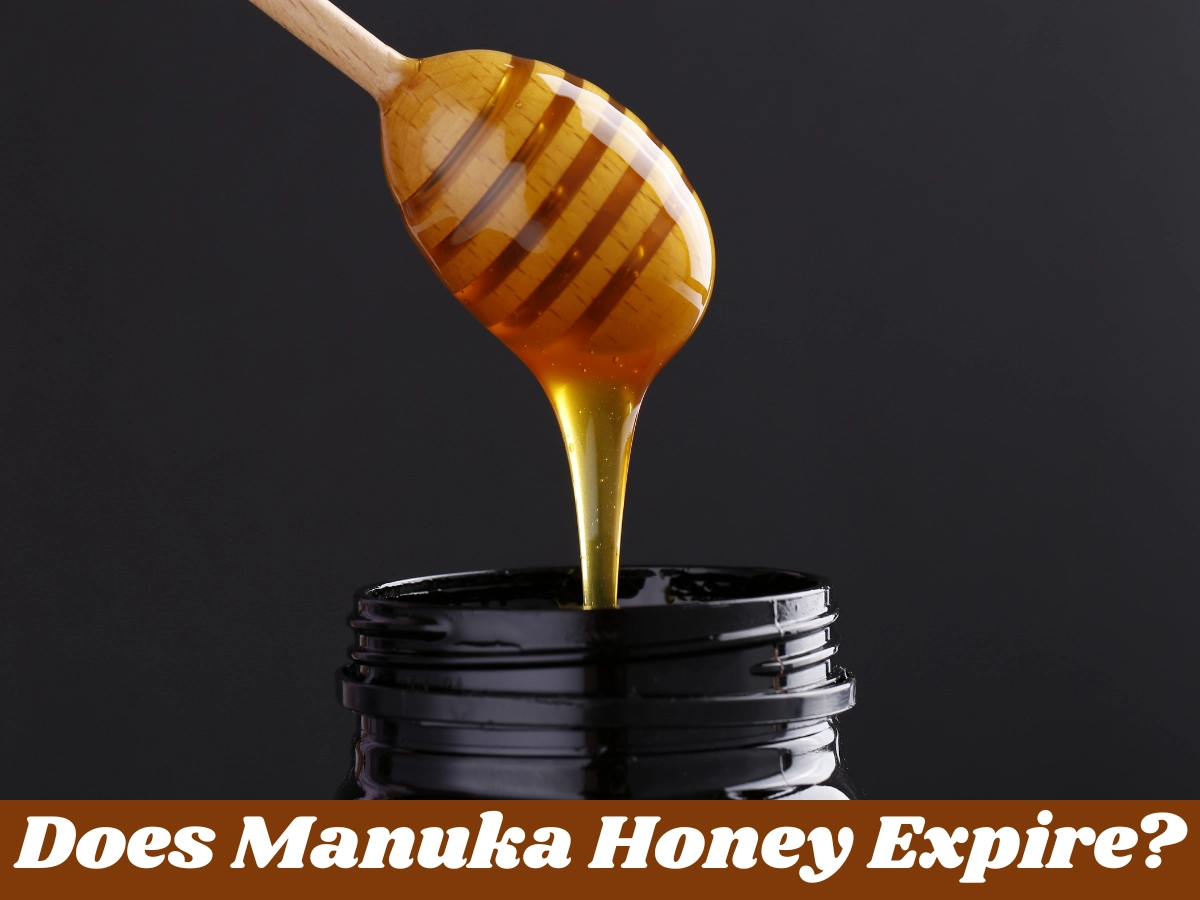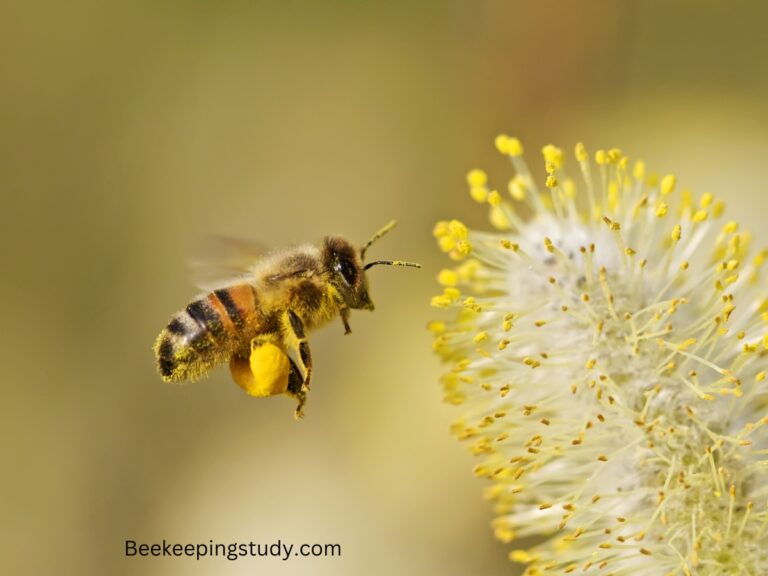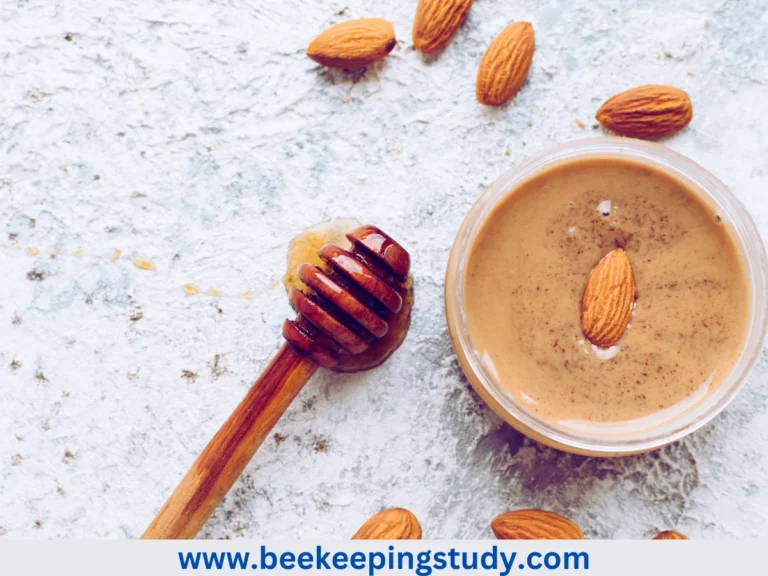This post might be created with help from AI tools and carefully reviewed by a human (Anthor Kumar Das). For more on how we use AI on this site, check out our Editorial Policy.
Does Manuka Honey Expire – Proper Storage Tips
Manuka honey is very popular worldwide, especially in Oceania and South America. But before purchasing, people often ask, “Does manuka expire or go bad?”
Manuka honey doesn’t have any shelf life or expiry. But it can go bad with time if doesn’t stored properly. For maximum health benefits it is better to consume manuka honey within 6 years of extraction.
In this article, I will give you a detailed insight into the Manuka honey shelf life. Also, how to store it properly for as long as you want to keep it safe.
What is Manuka Honey?
Manuka honey is a premium monofloral honey made when bees in New Zealand and Australia collect honey from manuka plants. It is named so just because those bees collect nectar only from Manuka plants, well known as “Tea Tree”.

Bees in most parts of New Zealand and some parts of Australia are popular for producing manuka honey. Leptospermum scoparium is native to New Zealand and available in some parts of New Zealand.
Mostly Apis mellifera bee species in New Zealand and Australia are capable of producing such honey. Manuka plants are not found in any other parts of the world. Thus, New Zealand and Australia are the only sources of Manuka Honey production.
Why Manuka Honey is So Special?
This specific honey is popular due to its high intake of antibacterial properties and lots of healthy compounds. It is mostly famous due to the presence of a high amount of methylglyoxal (MGO) in it, which is absent in other types of honey.
Methylglyoxal drives heavy “non-peroxide activity” which makes a unique antibacterial power. MGO arises from DHA in the nectar of Leptospermum scoparium during storage and maturation.
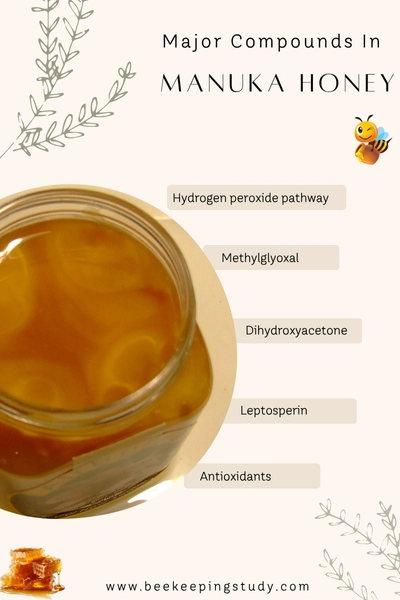
Followings are the major healthy compounds in manuka honey:
- Methylglyoxal (MGO)
- Dihydroxyacetone (DHA)
- Leptosperin
- Phenolic acids and flavonoids (Natural Antioxidants)
- Bee defensin-1
- Hydrogen peroxide pathway
- Oligosaccharides
Major Health Benefits of Manuka Honey
Manuka honey contains all the healthy benefits of regular honey. It contains some other unique and powerful health benefits, too.
Here are the major health benefits of manuka honey:
- Wound and burn care (topical, medical-grade only): Sterile, medical-grade honey dressings are used in clinics to help debride, control microbes, and support healing in chronic and acute wounds.
- Antibacterial activity that works even when peroxide is neutralized: Manuka contains high methylglyoxal (MGO). This drives strong non-peroxide antibacterial action, including activity reported against difficult pathogens in lab studies.
- Sore throat and cough relief: For children, honey modestly improves cough frequency and sleep versus placebo or no treatment over a few nights.
- Oral health support: Some people, after using manuka honey, observed reduced plaque and gingival bleeding indices, suggesting a supportive role alongside normal dental hygiene.
- Antioxidant and anti-inflammatory effects: Like other high-quality honeys, mānuka supplies phenolic compounds and flavonoids that contribute to antioxidant capacity. These will help any antibiotics to work faster.
- Skin-care adjunct: Some people reported that taking manuka honey helped to recover cavity injury and enhanced their skin tone and skin health.
Precautions Before Taking Manuka Honey
Despite plenty of health benefits of manuka honey, it is not suitable for people of every age. Also, overconsumption of manuka honey can cause several problems.
Here are safety quick notes you should take into account while taking manuka honey.
- Never give any honey to infants under 1 year, because of infant botulism risk.
- People with honey or bee-product allergies should avoid it.
- For open wounds, use sterilized medical-grade products, not table honey.
- An overdose of manuka honey can cause several problems. Stick with 1 to up to 2 teaspoons of manuka honey per day.
Does Manuka Honey Expire or Go Bad?
Manuka honey doesn’t expire or go bad in the general sense we consider about the expiration of any product. But it is safe to consume manuka honey within 6 years from the moment of honey extraction if stored properly. Some studies suggest that to get maximum health benefits of manuka honey, it should be consumed within 2 to 4 years.
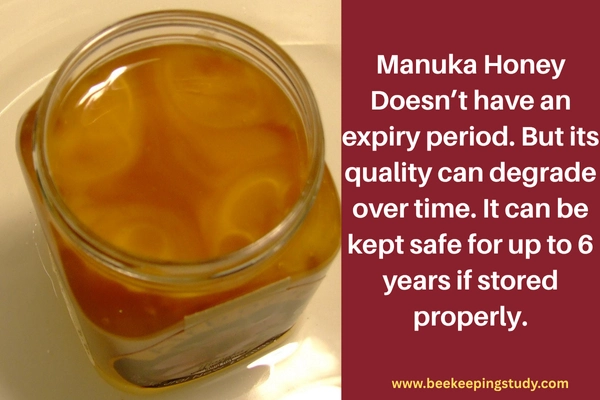
In the case of other products expiry date means the product is not edible after the expiry date. In the case of manuka honey, there is no such limitation on the expiry period. Manuka honey stays safe for several years due to it is low in water, acidic, and high in sugar.
Manuka honey is edible for any number of years until it becomes contaminated by external factors. Pure manuka honey doesn’t have a shelf life or expiration, but its quality can degrade over time.
It is always recommended to consume it as early as possible to take all the health benefits of manuka honey. But you can keep all of its healthy compound intake for up to 6 years, in fact, more than that if you can store it properly.
Crystallization is Not Spoilage
Some people often thoughts manuka honey is expired if crystallized. It is not actually the truth. Honey can crystallize for several reasons. It will retain all its nutrients after decrystallization properly.
Granulation or crystallization is normal. Warm the closed jar gently in a bowl of warm water to reliquefy and use as usual.
When Manuka Honey Can Actually Go Bad
Manuka honey can ferment if it absorbs extra moisture or is contaminated. Warning signs include foaming, bubbles, sour or yeasty smell, and a popping or bulging lid. If you see any of these signs, it is preferred not to consume such honey.
What changes over time in mānuka specifically
Though pure manuka honey doesn’t go bad. But when kept for long, there are some changes that can occur over time. Also, store-bought products might contain other chemicals or elements besides pure manuka honey.
-
MGO and DHA shift with storage. DHA in Manuka nectar slowly converts to MGO, which drives non-peroxide antibacterial activity. Heat and time change these levels, so MGO can rise or fall depending on conditions.
- Freshness markers. Labs often track HMF and enzyme activity to gauge age or heat exposure. Higher HMF means older or overheated honey.
New Zealand authenticates manuka honey with four chemical markers plus a manuka DNA marker. This is about authenticity and labeling, not shelf life, but it helps buyers trust what they are getting.
Proper Storage Tips for Manuka Honey
Though manuka honey doesn’t have any expiry in a general sense, its quality can degrade over time. To keep it fresh for longer periods of time, proper storage is key.
Here is how you should store manuka honey to use it for years with full nutrients.
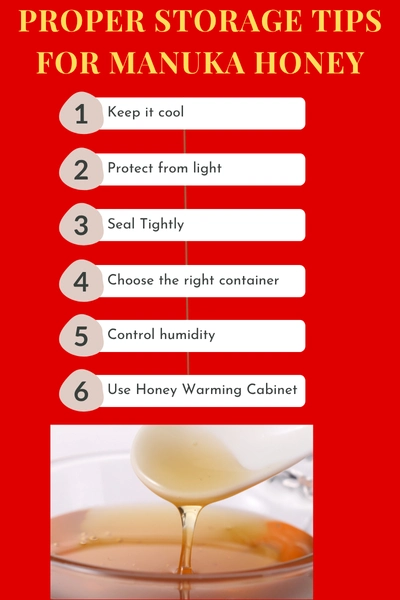
1) Keep it cool, not cold
The room temperature is best. Aim for roughly 15–25°C. Avoid hot spots like sunny shelves or next to the stove. Do not refrigerate because cold temperature can invoke crystallization.
2) Protect from light
Store in a dark cupboard or pantry. Light and heat speed up flavor darkening and can shift the balance of MGO and DHA over time.
3) Seal it tight
Close the lid firmly after every use. Honey pulls in moisture from humid air. Extra moisture can lead to fermentation. A tight seal also keeps out pantry odors.
4) Use clean utensils
Dip with a dry, clean spoon. Water, crumbs, tea, or butter introduce microbes and moisture. Stainless steel or wood is fine. A quick in-and-out is better than resting the spoon on the rim.
5) Choose the right container
Food-grade glass or high-quality plastic works well. If you decant, sanitize and fully dry the new jar first. Keep the factory label or note the harvest and open date.
6) Control humidity in hot climates
If your kitchen is steamy, keep the jar in the coolest, driest cupboard you have. You can place the jar inside an airtight canister to add a barrier against humid air.
7) Don’t microwave the jar
If you need to soften thick or crystallized honey, warm it gently. Place the closed jar in a bowl of warm water and stir every few minutes until smooth. Avoid boiling water and direct heat.
8) Keep it away from strong smells
Honey absorbs aromas. Store it away from spices, onions, or cleaning chemicals so the flavor stays clean.
9) For long holds, freeze portions
If you plan to store a large batch for many months, you can freeze portions in airtight containers. Thaw at room temperature. Freezing helps preserve flavor and aroma. To prevent crystallization, you can store it in honey warming cabinets.
10) Separate kitchen vs skincare use
If you apply manuka on skin, spoon out what you need into a small, clean cup. Do not double dip. Keep the main jar for food only.
What’s The Bottom Line?
Hopefully, you get an in-depth answer to your question Does manuka honey expire? Stored correctly, manuka honey does not “expire” in the usual sense.
Expect quality degradation over the years. Darker color, stronger flavor, or crystallization is normal but it stays safe unless moisture or contaminants cause fermentation. If it smells or looks off, throw it out.
Quick checks:
- Normal changes: color deepening, slow thickening, or fine crystals.
- Red flags: foaming, yeasty or sour smell, bulging lid. If in doubt, discard.
What’s The Bottom Line?
Hopefully, you get an in-depth answer to your question Does manuka honey expire? Stored correctly, manuka honey does not “expire” in the usual sense.
Expect quality degradation over the years. Darker color, stronger flavor, or crystallization is normal but it stays safe unless moisture or contaminants cause fermentation. If it smells or looks off, throw it out.
Quick checks:
Normal changes: color deepening, slow thickening, or fine crystals.
Red flags: foaming, yeasty or sour smell, bulging lid. If in doubt, discard.
The following articles might be helpful for you.
- DIY Homemade Creamed Honey.
- Does Bee Pollen Expire?
- Most Effective Yet Easy Weight Loss Drink Recipe.

